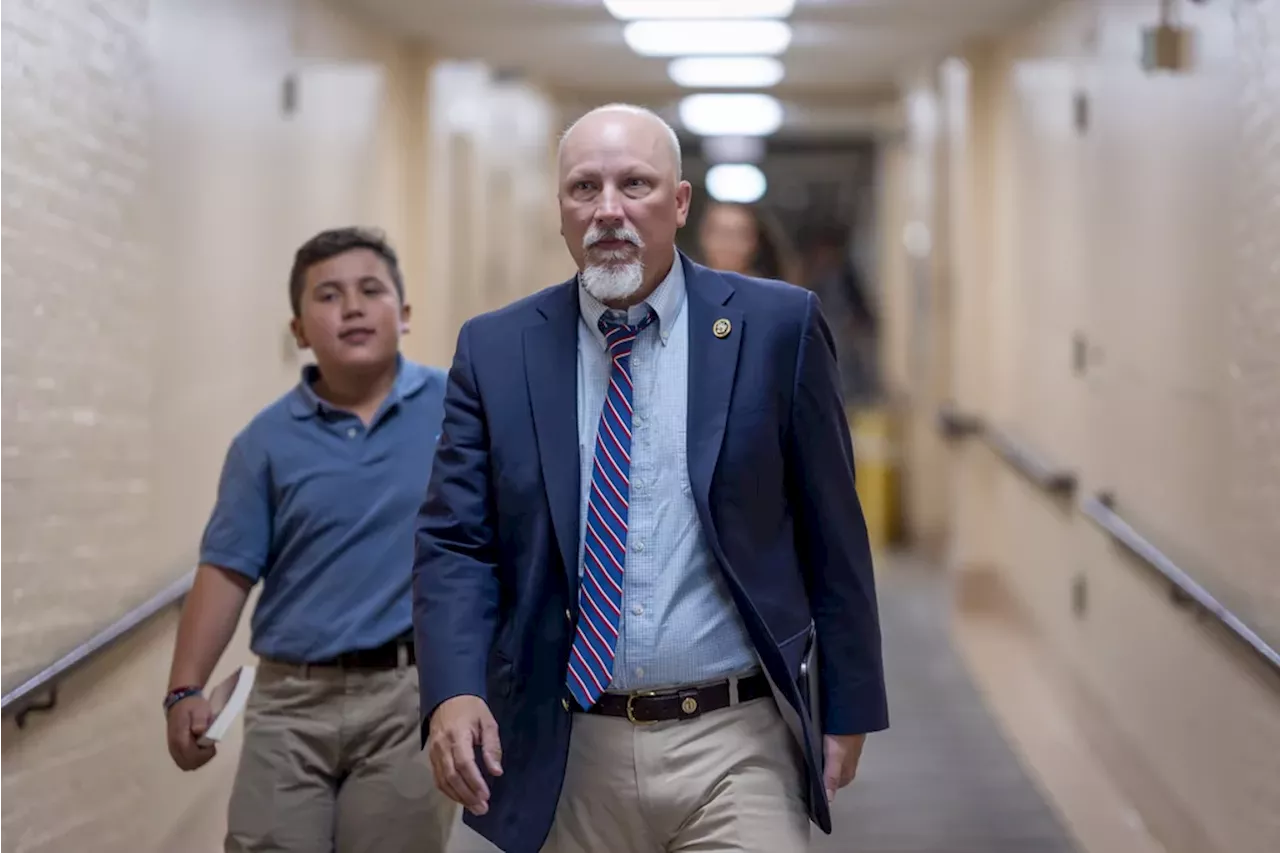A new bill introduced by Rep. Chip Roy (R-TX) seeks to significantly expand health savings accounts (HSAs) as a core component of a broader healthcare reform agenda. The ‘Healthcare Freedom Act’ aims to reshape the American healthcare system by empowering individuals with greater control over their health spending.
could undergo major changes under the incoming Trump administration thanks to a new bill being introduced this week seeking to reform health savings accounts. Rep. Chip Roy (R-TX) introduced the Healthcare Freedom Act on Thursday seeking to reform the healthcare system by expanding health savings accounts to broaden coverage for U.S. taxpayers and “give Americans the quality of care they deserve.” “America’s healthcare system needs disruption,” Roy said in a statement.
“For too long we have enabled the decisions of government bureaucrats and massive corporations over those of American patients and their doctors. This country deserves better, and Congress needs to put the American people back in control. With the Healthcare Freedom Act, and its massive expansion of Health Savings Accounts (HSAs), we can slash through the bureaucracy, lower costs, and give Americans the quality of care they deserve.”to use his Healthcare Freedom Act as a “core component” of a broader “bold agenda” to reform the healthcare system and replace proponents of the Affordable Care Act, known as Obamacare, that was implemented in 2010. The bill would rename health savings accounts to “Health Freedom Accounts” and allow any customer with the account to decouple their health savings from insurance requirements, according to legislative text first shared with theSpecifically, the bill would increase annual contributions for individuals from $4,300 to $12,000 and from $8,550 to $24,000 for a joint return. It would also increase the catch-up contribution limit from $1,000 to $5,000 for those 55 and older. Additionally, the bill would allow tax-free withdrawals for purchases and payments to insurance and any associated costs, direct primary care arrangements, prescriptions and over-the-counter medications, and other medical costs. It would also allow for penalty-free rollover contributions between health savings accounts. By doing so, Roy said it would make health savings accounts more available by increasing contribution limits and allowing tax-free growth. The bill would also allow customers to more easily access direct primary care, which allows primary care physicians to charge a monthly fee ranging from $50 to $100 for unlimited medical access. That way, it would ensure patients get “much-needed preventive care for a fixed, known cost, instead of waiting months for an appointment just for your doctor to spend more time typing notes for insurance codes than actually talking and looking at you,” RoyRepublicans have long vowed to change how the healthcare system works, and President-elect Donald Trump has hinted at some sort of reform after he takes office. Trump previously vowed in his last term to make some sort of changes to the Obamacare system, saying he would replace it with “something terrific.” However, he failed to make any systemic changes during his time in office, and he has started to walk back from those promises as the Obama-era law has become more popular. “If we can come up with a plan that’s going to cost our people, our population, less money and be better healthcare than Obamacare, then I would absolutely do it,” Trump said during his debate against President Joe Biden last summer. “But until then, I’d run it as good as it can be run.” It’s not yet clear when the legislation may be brought to the floor for a vote, but it signals that Republicans are likely to target healthcare reforms as a top priority for when Trump is sworn in and the GOP controls both chambers of Congress
Healthcare HEALTHCARE Hsas HEALTH SAVINGS ACCOUNTS TRUMP REPUBLICANS OBAMACARE HEALTHCARE REFORM
United States Latest News, United States Headlines
Similar News:You can also read news stories similar to this one that we have collected from other news sources.
 GE HealthCare's AI-Powered Approach to Transforming HealthcareGE HealthCare is leveraging artificial intelligence to address the challenges of data overload and operational inefficiencies in healthcare. The company is investing heavily in AI research and development, with a focus on applications such as cancer care and patient data analysis.
GE HealthCare's AI-Powered Approach to Transforming HealthcareGE HealthCare is leveraging artificial intelligence to address the challenges of data overload and operational inefficiencies in healthcare. The company is investing heavily in AI research and development, with a focus on applications such as cancer care and patient data analysis.
Read more »
 Man Charged With Murder as an Act of Terrorism in Death of Healthcare ExecutiveLuigi Mangione has been charged with murder as an act of terrorism for the killing of a healthcare executive in New York City.
Man Charged With Murder as an Act of Terrorism in Death of Healthcare ExecutiveLuigi Mangione has been charged with murder as an act of terrorism for the killing of a healthcare executive in New York City.
Read more »
 Sanders Reintroduces Medicare for All Act, Aiming for Universal HealthcareSenator Bernie Sanders has reintroduced the Medicare For All Act, seeking to establish universal healthcare in the U.S. The legislation would provide comprehensive coverage for all Americans, including primary care, vision, dental, and reproductive healthcare, without out-of-pocket expenses or insurance premiums. Prescription drugs would also be covered, with the government empowered to negotiate drug prices. Supporters argue that universal coverage would save lives, reduce healthcare costs, and eliminate the fear of losing coverage due to job loss.
Sanders Reintroduces Medicare for All Act, Aiming for Universal HealthcareSenator Bernie Sanders has reintroduced the Medicare For All Act, seeking to establish universal healthcare in the U.S. The legislation would provide comprehensive coverage for all Americans, including primary care, vision, dental, and reproductive healthcare, without out-of-pocket expenses or insurance premiums. Prescription drugs would also be covered, with the government empowered to negotiate drug prices. Supporters argue that universal coverage would save lives, reduce healthcare costs, and eliminate the fear of losing coverage due to job loss.
Read more »
 House passes Laken Riley Act in first legislative act of new CongressPolitical News and Conservative Analysis About Congress, the President, and the Federal Government
House passes Laken Riley Act in first legislative act of new CongressPolitical News and Conservative Analysis About Congress, the President, and the Federal Government
Read more »
 New California Laws Impact SchoolsCalifornia implements new laws affecting school districts, including mandatory health education with fentanyl awareness, homework regulations, and the protection of intellectual freedom through the California Freedom to Read Act.
New California Laws Impact SchoolsCalifornia implements new laws affecting school districts, including mandatory health education with fentanyl awareness, homework regulations, and the protection of intellectual freedom through the California Freedom to Read Act.
Read more »
 Murder of CEO Sparks Debate on Healthcare RightsThe fatal shooting of Brian Thompson, CEO of UnitedHealthcare, has ignited a controversy surrounding the perceived right to healthcare. While many condemn the act, the article explores the underlying belief that healthcare is a fundamental right, leading some to justify the murder. It argues against this notion, defining rights as freedoms and emphasizing that forcing healthcare provision violates individual autonomy.
Murder of CEO Sparks Debate on Healthcare RightsThe fatal shooting of Brian Thompson, CEO of UnitedHealthcare, has ignited a controversy surrounding the perceived right to healthcare. While many condemn the act, the article explores the underlying belief that healthcare is a fundamental right, leading some to justify the murder. It argues against this notion, defining rights as freedoms and emphasizing that forcing healthcare provision violates individual autonomy.
Read more »
